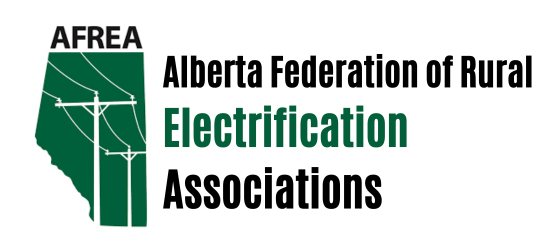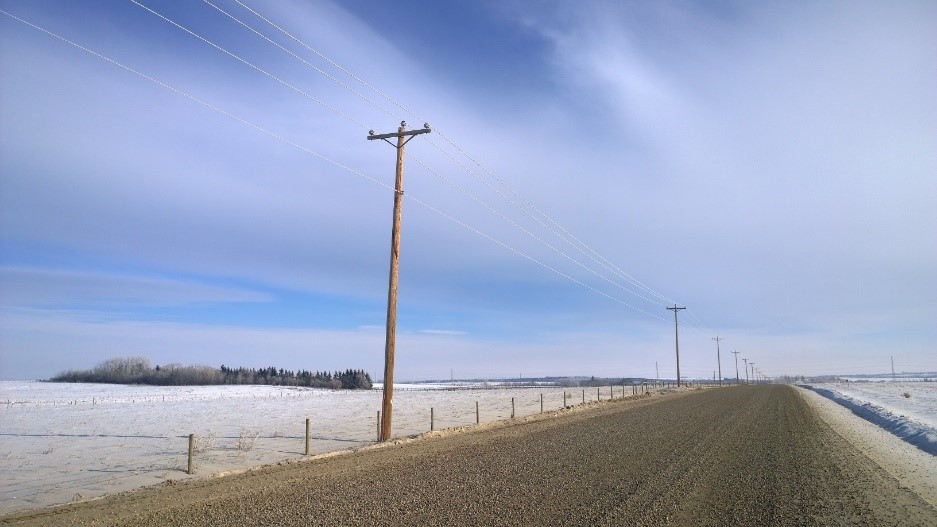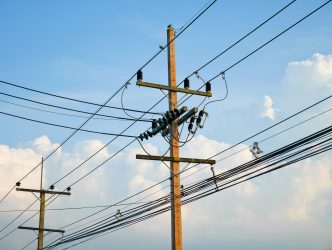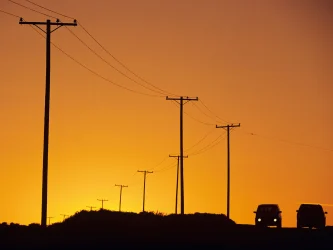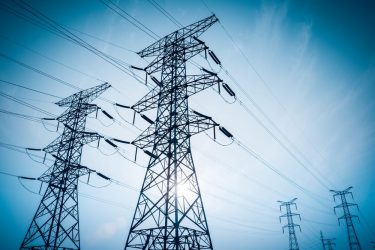When studying climate change, scientists draw their evidence from many sources. However, it is widely accepted that green house gases are causing changes to our climate.
Climate Change Position – Discussion Principles
We, as a collective, are working toward a sustainable future for all REAs in the province with options that allow for growth and prosperity. We do not operate in isolation – Rural Electrification Associations (REAs) are an integral part of a dynamic industry governed by overriding economic principles for the fair, efficient & affordable provision of electricity. The Alberta strategy on climate change challenges the foundation of our distribution system with the elimination of coal-fired generators by 2030. Because we are part of the bigger picture in Alberta, it is imperative that we devise and implement a long term strategy to ensure REAs make the transition to this inevitable industry transformation.
In much the same manner as Smart Grid, Climate Change is taking the planet by storm, in a manner of speaking. Our Federal and Provincial governments are on board with plans that will introduce sweeping changes destined to clean up our national and provincial environments. Reducing our carbon foot print and employing renewable resources are two of the methods to implement this change. Although it’s a world-wide phenomenon – Alberta is delayed in its implementation of some kind of Climate Change strategy, employing components of the Federal plan and accelerating some to introduce a more aggressive timeline. Challenging Climate Change is based on making smarter energy choices by reducing the production of harmful environmental by-products. Replacing coal-fired generation is foremost in the Alberta plan with a 2030 deadline for taking the final plants off line. But how does Climate Change affect the industry, as a whole? How does this sweeping initiative affect rural power utilities who bank on coal fired generators to supply their power? What changes have to be made in order for the rural power utility to fit into the Plan? How does the Climate Change Plan effect rural communities, in general – especially with revitalization of rural communities a focus needed to ensure their longevity? Does the Business Case provide strategy and support for those who are dependent upon rural economic diversity and development? What long term consequences are likely to affect consumers and electricity pricing over the course of this transition and beyond?
As a part of this planet, our general statement would be that we care about the effects of modernization on our climate, the decimation of natural resources, and the degradation of what will be left for future generations. A Google search for “climate change” will bring up a myriad of positions, plans, articles and arguments, agreements and disagreements as to what Climate Change is and even whether or not it actually exists. Regardless of your own stand on Climate Change, it is hard to argue the need for conservation in order to respect and preserve what natural environment we do have. Reduction of valuable rainforests, urbanization, and increased industry emissions from a society highly dependent upon technology factor into the change in climate patterns. Where you get your information will be irrelevant – as long as it is reputable – because Climate Change is a global issue, much like anything to do with technology, growth and advancement, and preservation of our planet.
Our position does not question the need to implement preservation plans, but questions if enough study has gone into the effects this will have on all areas of the utility market. If Alberta rushes in to implement their Climate Change Plan just to keep up with global applications, are we sacrificing a well-researched and executed plan just to implement something? We are not leaders in this initiative – is there a reason to roll it out in haste?
What is Climate Change?
The cut and dried version of Climate Change is defined as the “long term change in the earth’s climate, especially due to an increase in the average atmospheric temperature.”[i] However, there are many variables to consider in this process, including the fact that Climate Change is projected to change both average conditions and extreme weather events.[ii] First, although the term “climate change” is fairly new with an early 1980’s origin, the process itself is ages old being a natural process the Earth went through long before human activity affected its intensity. Factors such as the Earth’s orbit, intensity of the sun, volcanic activity, etc. catered to changes occurring naturally as the Earth progressed through periods of ice ages and warming trends. The greenhouse gas effect, whereby the Earth retains heat, is intensified with the burning of fossil fuels (coal, oil, natural gas). The main cause of drastic changes during the last half of the 20th century has refocused on human activity.
The climate is changing and globally we are experiencing impacts[iii], such as:
- Increasing temperatures
- Rising ocean levels
- More frequent droughts, floods, and forest fires
- More extreme weather, which creates greater societal challenges
The Earth’s climate is affected by the following human and natural factors that are external to the climate system.
- Natural Factors
- Changes in ocean currents
- Changes in solar radiation
- Natural activity, such as volcanic activity
- Human Factors
- Depleting ozone layer through use of chemicals like Chlorofluorocarbons (CFCs)
- Increases in concentrations of greenhouse gases, primarily from burning fossil fuels, which trap heat within our atmosphere
- Using forests and wetlands for agricultural, residential and industrial uses
- Carbon dioxide (CO2)
- Methane (CH4)
- Nitrous oxide (N2O)
Each of these compounds has an important effect on the earth’s temperature by trapping heat in the atmosphere and causing global temperatures to increase. While this natural greenhouse effect makes life on Earth possible, an excess of greenhouse gases in the atmosphere could dramatically change our ecosystem. A majority of scientists now agree that human activity is responsible for most temperature increases over the past 250 years. Humans have substantially increased the amount of greenhouse gases in the atmosphere by burning fossil fuels, including:
- Coal
- Natural gas
- Oil
The biggest concern is the speed at which the growth of greenhouse gas emissions in the atmosphere is occurring.
The Government Strategy
Alberta: (note: this may change with the new party in office – will be updated)
Alberta is developing a new strategy on climate change based on recommendations put forward by the Climate Change Advisory Panel, published in their report Climate Leadership – Report to Minister November 2015. Details of the final strategy are being developed, but there are 4 key areas that the Alberta government is moving forward on:
- Phasing out emissions from coal-generated electricity and developing more renewable energy
- Implementing a new carbon price on greenhouse gas emissions
- A legislated oil sands emission limit
- Employing a new methane emission reduction plan[iv]
Alberta’s response to climate change will determine our province’s future. As a jurisdiction rich in fossil fuels, and where the energy sector plays such a large role in our economy, the implications of climate policies – be they provincial, national or international – are significant. They will impact employment, future economic growth and stability, the government’s ability to pay for social services, and Albertans’ prosperity, opportunities, and health. Meeting global climate change goals means decreasing the use of coal and oil, and increasing use of natural gas and renewable energy. It means market demand will rise for low- and no-carbon energy sources and fall for high-cost and emissions-intensive resources. Technologies capable of separating economic growth from energy use and energy production from carbon emissions will prosper. This is the future for which Alberta must prepare.
Canada:
Facts on Climate Change: Climate change refers to a long-term shift in weather conditions. It is measured by changes in a variety of climate indicators (e.g. temperature, precipitation, wind) including both changes in average and extreme conditions. Climate change can be the result of natural processes and/or human activity.[v]

Climate Change – AFREA Perspective
Evaluation of plans that address Climate Change must encompass general applications and specific business strategies especially because a plan such as this will have long lasting effects on future generations. In principal, the AFREA agrees with the need to ensure adequate legislation is in place and there is clearly identified and enforced penalties with regard to environmental disasters and dangerous emission levels. But in order to ensure that the Plan will work there are several questions that must first be answered. Does the analysis of timing, cost benefits, economics, and technology ensure they are in sync with Alberta’s electric system? How does the replacement of a plentiful resource with alternate sources contribute to demand on the grid? What will be the cost passed on to Alberta power consumers? Now and in the future? The transformation to alternative energy will require new investment and commitment by the Government and its many stakeholders. These stakeholders expect significant value in return. Understanding how this value will be created is an important step in defining the vision. Expectations are high and our support of such a plan can only be realized with thorough consideration to each of the areas described below:
- Agree with the concept of preserving the planet for future generations – this basic concept supports any plan that considers the drain on natural resources and implementation of systems that are based on future estimations.
- Science has provided detail and data to support the deterioration and proposed outcomes – there are those who argue the reality of Climate Change even going so far as to claim it is a hoax. Scientific support, however, cannot be argued as false as we experience some of the proposed outcomes with regard to changes in weather and other natural patterns.
- Societal Impacts and our standard of living – no matter how far we advance, and perhaps because of how far we advance, there is an expectation as to the level standards we, as a society, are willing to accept. Plans that impact society as a whole must consider the consequences of implementation.
- Safe Reliable Cost effective electric system – there is no deviation from the basic economic right as consumers – we still expect a safe reliable cost effective electric system, no matter how it is delivered. In the Alberta market place, those expectations have always been high on the industry standard list. If change by the Climate Change Plan triggers the need for new transmission projects to accommodate the load and continue to give Albertan’s a “safe, reliable, and cost effective” system, are cost management structures in place before any new projects are implemented?
- Electricity as a critical commodity in our social and business environments – it’s one of those expectations we have become accustomed to – flip the switch and the power comes on. Our dependency on power has made it a critical commodity in our home and work life, and all the measures in between.
- Global, Federal, Provincial & Local Economics must be included in the decisions – as we have stated, we do not operate in isolation from the Alberta industry; so, too, with the Alberta industry in relation to the rest of the world. Our immediate economics are driven by our success and involvement in the local market AND the global market.
- Technology and economics must converge to provide an efficient outcome – we cannot expect success of any plan without the support of systems and resources. Technology must keep abreast of the electric requirements to have an efficient cost effective way to o implement new systems and then maintain their growth over time. With regard to generation, it would be prudent to use existing transmission system facilities before considering building new generators. Replacing coal generators and eliminating emissions is foremost in the Climate Change Plan, but early retirement??
- Long term life cycle analysis on systems and process is required – this is not a one-time thing… there has to be a way to ensure longevity through analysis and review on an ongoing basis. There are going to be many evolutions as there have already been in the industry over the past few decades. Power poles have a lifecycle of 50 years with pole testing done on rotation intervals; solar panels are estimated to last 25 years with diminishing capacity after that – what are the lifecycle vs replacement costs of all replacement renewables capital investments and how are costs recouped – do they get passed on to the consumer?;
- Must be Cost effective today and for future generations – goes without much argument that consumers look at their costs and there is no reason to believe that this won’t be something of concern in the future, too – unless it becomes a luxury. As a critical commodity, electricity must be affordable for everyone so we have a wholly functioning society.
- Funding must be provided under good business protocol– fair and equitable consideration and distribution of funding must be available to each level of participation in order to have an industry that operates in unison to provide “a fair and efficient electric system.”
- Feasibility Studies and Business cases must be used to provide the analysis for each project – only with proper review can each project be evaluated on its merits to the plan, as a whole. If a project does not measure up to standards set by studies or arguments met under cost/value comparatives, its value to the whole plan must be reconsidered. The Business Case on each of the suggested projects should include criteria for a localized procurement process and a reclamation bond in order to utilize capital investments already in place (wind generation, updated generating plants, etc.) thereby minimizing the cost passed on to the consumer. It is imperative that installations already in place are used to full potential to maximize efficiency.
- Clearly identify the Risks and Rewards – risk analysis must provide specific details of expected outcomes as well as identify the cost and reward of implementation under each project with application to all levels of the industry participation.
- Government funding would be initiated for startup only and the ongoing costs would be included in the business practices – ongoing funding should not be part of the long term plan to convert to Climate Change Plan protocols. There should be initial funding available due to the cost of introducing compliance to new regulations; however, ongoing costs need to be calculated into the business plan of each industry participant. How does this impact the privatized industry? What costs are passed along to the consumer?
- Consumer cost for the electricity commodity short and long term – consumers pay for upgrades to the transmission system now – how much and for how long will consumers be on the hook for cost recovery of Climate Change Plan conversions? How is the cost going to be recaptured by those who are beholding to shareholders? What regulations will be in place to protect consumers? How long and how much will consumers pay for Climate Change, if they should, at all?
Climate Change Objectives – Summary:
As with many initiatives introduced for the benefit of the greater good, responsible organizations would do well to find ways to embrace changes that are inevitable. As one component operating within the bigger power picture in Alberta, REAs have a vested interest in what happens within that industry. If the goal is to be sustainable into the future, our argument for a better world for generations to come, supports the Climate Change Plan, in principal. Our argument for caution lies in the identification of true costs to implement new protocols especially in our role as small consumer power cooperatives. REAs wholly support the provision of a fair, reliable, and efficient electric system in Alberta and adapt to those initiatives that contribute to building a strong rural community. REAs continue to hold the position of benchmark within the industry in rural Alberta operating on a not-for-profit basis. Working with the government to ensure our future generations have the same access to “fair, reliable, and economical” power systems is forefront in our strategic planning and sustainability.
References:
[i] Dictionary Definition of Climate Change – http://www.dictionary.com/browse/climate-change
[ii]Facts on Climate Change – Government of Canada – http://www.climatechange.gc.ca/default.asp?lang=En&n=F2DB1FBE-1
[iii](Source: Alberta Government / Climate Leadership)
[iv]Alberta Climate Leadership Plan – http://www.alberta.ca/climate-leadership-plan.aspx
[v]Ibid. Facts on Climate Change – Government of Canada
